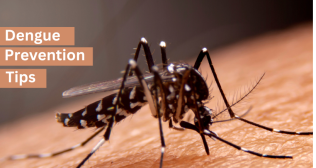
The Role of Typhoid Vaccine as a Savior in Modern Times
Introduction
In a world where global travel and interconnectedness are the norm, infectious diseases remain a genuine concern. Among these, typhoid fever stands out as a significant threat. Typhoid fever is a bacterial infection caused by Salmonella typhi, primarily transmitted through contaminated food and water. Despite advances in healthcare, the disease remains a significant public health challenge, especially in developing countries where access to clean water and sanitation facilities is limited. Moreover, with the ease of international travel, typhoid can quickly spread across borders, posing risks to travelers and local populations.
In recent years, there have been outbreaks of drug-resistant strains of Salmonella typhi, further complicating treatment and control efforts. This situation underscores the importance of preventive measures, such as vaccination, to curb the spread of the disease. The development and extensive use of vaccines have been pivotal in controlling the spread of typhoid fever. The vaccine is available in two forms, injectable and oral, and its administration depends on factors such as age, health status, and travel itinerary.
How Does Typhoid Vaccine Help?
The benefits of typhoid vaccination are manifold. It offers a shield against the debilitating effects of typhoid fever. Some of its benefits include:
- Prevention of Infection: The primary benefit of the typhoid vaccine is its ability to prevent typhoid fever. It stimulates the immune system to recognize and fight Salmonella typhi and reduces the risk of infection.
- Reduced Disease Burden: The typhoid vaccine provides long-lasting protection against the disease and significantly reduces the incidence of typhoid fever by preventing outbreaks and decreasing the burden on healthcare systems.
- Protection for Travelers: Travelers visiting regions where typhoid is endemic or where outbreaks have occurred can protect themselves by getting vaccinated before their trip. This is particularly important for individuals planning to engage in activities that may expose them to contaminated food or water.
- Community Protection: By vaccinating individuals against typhoid, herd immunity can be achieved, providing indirect protection to those who are not vaccinated. This is especially crucial in areas where the disease is endemic and transmission rates are high.
- Cost-Effective Intervention: Vaccination is a cost-effective strategy for preventing typhoid fever, especially compared to the expenses associated with treating the disease and managing outbreaks.
Who Should Take the Typhoid Vaccine?
- Travelers to endemic areas where typhoid is prevalent, especially some parts of Asia, Africa, and Latin America
- People living in or relocating to regions have a high incidence of typhoid fever
- Healthcare professionals who might come into contact with infected patients
- Military personnel deployed to areas where typhoid is endemic
- Laboratory workers handling cultures of Salmonella typhi
Typhoid Vaccine Facts That You Must Know
- Both forms of the vaccine are generally safe and well-tolerated by most individuals.
- The typhoid vaccine can cause temporary mild side effects in some cases, like soreness, redness, swelling, nausea, vomiting, or diarrhea.
- In rare cases, individuals may experience severe allergic reactions (anaphylaxis) shortly after vaccination.
- People with allergies or weak immune systems are not recommended to take the vaccine without a doctor’s advice.
- Pregnant women should avoid the vaccine unless traveling to an endemic area. However, the vaccine is safe for breastfeeding mothers.
- Special vaccines are available for children aged six months and older.
- While the typhoid vaccine is highly effective in preventing typhoid fever, some vaccinated individuals may still become infected. However, the severity of the illness is lesser compared to unvaccinated individuals.
- The duration of protection the typhoid vaccine offers varies depending on the type of vaccine administered. The injectable typhoid vaccine typically provides immunity for about two to three years, while the oral typhoid vaccine offers protection for approximately five years following completion of the vaccination regimen. Depending on the type of typhoid vaccine used, booster doses may be required to maintain immunity over time.
What are the Challenges Faced in Typhoid Vaccination?
Administering typhoid vaccines comes with its own set of challenges. From ensuring widespread access in endemic regions to grappling with vaccine efficacy and delivery hurdles, navigating these complexities demands a coordinated effort. They include:
- Access and Distribution: Getting vaccines to remote or underserved areas can be difficult due to logistical challenges, such as lack of transportation, storage facilities, and trained healthcare personnel.
- Cold Chain Requirements: Many typhoid vaccines, particularly injectable ones, require strict temperature control throughout the distribution chain to maintain effectiveness.
- Cost: Cost can be a significant barrier to vaccine access, particularly in low-income countries or regions with limited healthcare resources.
- Public Awareness and Acceptance: Communities need education about the importance of typhoid vaccination, and their misconceptions or concerns must be addressed.
- Multiple Dosing Schedules: Some typhoid vaccines require multiple doses to achieve optimal protection, which can complicate vaccination campaigns and decrease compliance.
- Monitoring and Surveillance: Inadequate surveillance systems or lack of resources for data collection and analysis can hinder monitoring vaccine coverage and effectiveness and tracking disease incidence.
- Emerging Strains and Vaccine Efficacy: Emerging antimicrobial resistance threatens the effectiveness of existing vaccines, requiring continued surveillance and research.
Recent Advances
One of the most recent advancements in typhoid vaccines is the development of Vi conjugate vaccines. These vaccines utilize conjugation technology, resulting in a more robust and longer-lasting immune response than previous vaccines. Moreover, these vaccines have demonstrated efficacy even in children as young as six months old, making them suitable for integration into routine childhood immunization programs. The World Health Organization has endorsed Vi conjugate vaccines for typhoid control, particularly in regions with high levels of antimicrobial resistance.
To conclude, the typhoid vaccine is an essential tool in the fight against typhoid. By investing in vaccination, we can safeguard ourselves and join the fight to eliminate typhoid fever altogether.
Popular Searches :
Hospitals: Cancer Hospital in Delhi | Best Heart Hospital in Delhi | Hospital in Amritsar | Hospital in Ludhiana | Hospitals in Mohali | Hospital in Faridabad | Hospitals in Gurgaon | Best Hospital in Jaipur | Hospitals in Greater Noida | Hospitals in Noida | Best Kidney Hospital in Kolkata | Best Hospital in Kolkata | Hospitals in Rajajinagar Bangalore | Hospitals in Richmond Road Bangalore | Hospitals in Nagarbhavi Bangalore | Hospital in Kalyan West | Hospitals in Mulund | Best Hospital in India | Gastroenterologist in Jaipur | Cardiology Hospital in India
Doctors: Dr. Rana Patir | Dr. Rajesh Benny | Dr. Rahul Bhargava | Dr. Jayant Arora | Dr. Anoop Misra | Dr. Manu Tiwari | Dr. Praveer Agarwal | Dr. Arup Ratan Dutta | Dr. Meenakshi Ahuja | Dr. Anoop Jhurani | Dr. Shivaji Basu | Dr. Subhash Jangid | Dr. Atul Mathur | Dr. Gurinder Bedi | Dr. Monika Wadhawan | Dr. Debasis Datta | Dr. Shrinivas Narayan | Dr. Praveen Gupta | Dr. Nitin Jha | Dr. Raghu Nagaraj | Dr. Ashok Seth | Dr. Sandeep Vaishya | Dr. Atul Mishra | Dr. Z S Meharwal | Dr. Ajay Bhalla | Dr. Atul Kumar Mittal | Dr. Arvind Kumar Khurana | Dr. Narayan Hulse | Dr. Samir Parikh | Dr. Amit Javed | Dr. Narayan Banerjee | Dr. Bimlesh Dhar Pandey | Dr. Arghya Chattopadhyay | Dr. G.R. Vijay Kumar | Dr Ashok Gupta | Dr. Gourdas Choudhuri | Dr. Sushrut Singh | Dr. N.C. Krishnamani | Dr. Atampreet Singh | Dr. Vivek Jawali | Dr. Sanjeev Gulati | Dr. Amite Pankaj Aggarwal | Dr. Ajay Kaul | Dr. Sunita Varma | Dr. Manoj Kumar Goel | Dr. R Muralidharan | Dr. Sushmita Roychowdhury | Dr. T.S. MAHANT | Dr. UDIPTA RAY | Dr. Aparna Jaswal | Dr. Ravul Jindal | Dr. Savyasachi Saxena | Dr. Ajay Kumar Kriplani | Dr. Nitesh Rohatgi | Dr. Anupam Jindal |
Specialities: Heart Lung Transplant | Orthopedic | Cardiology Interventional | Obstetrics & Gynaecology | Onco Radiation | Neurosurgery |



















